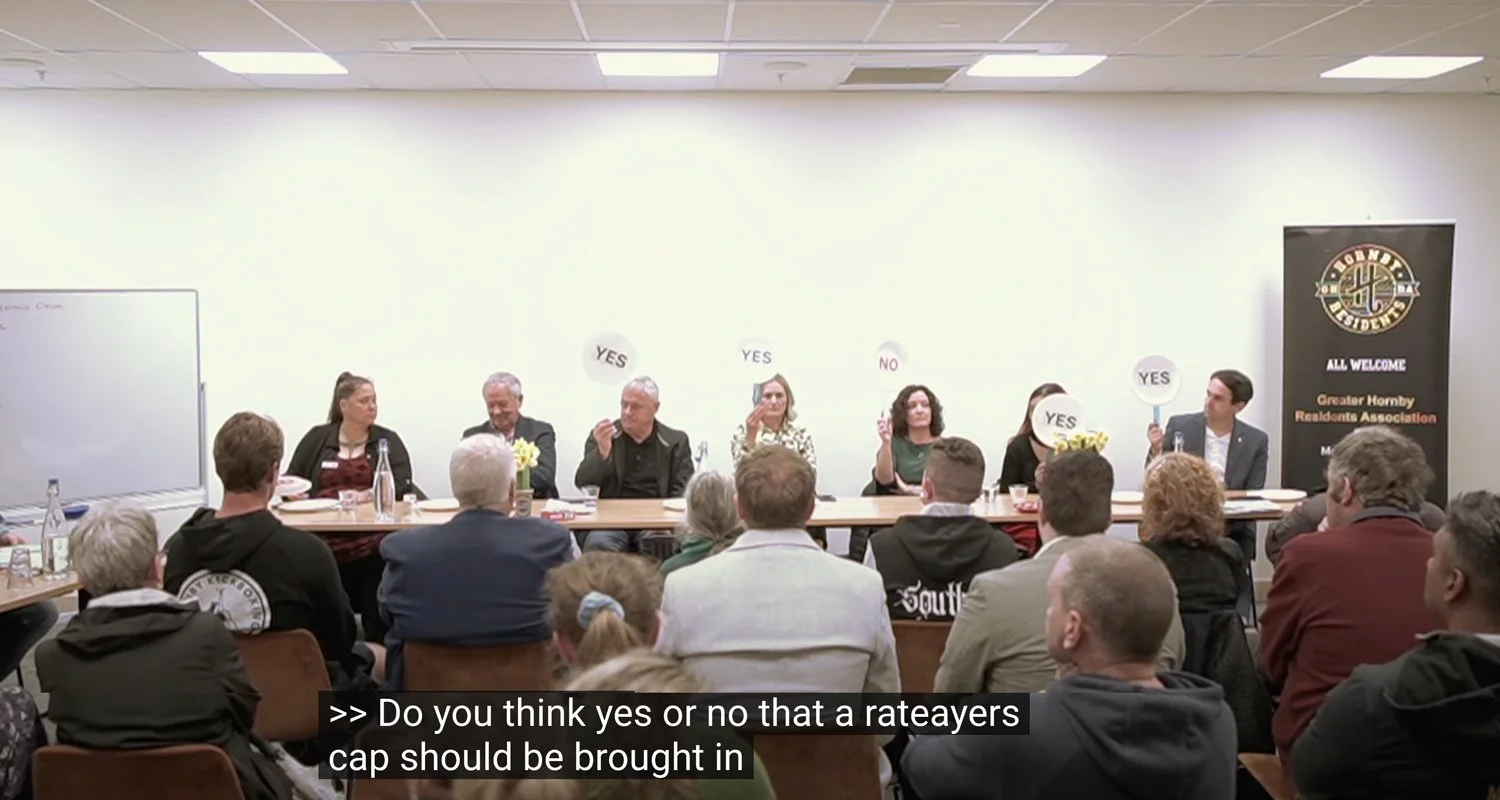Let’s Be Honest About Rates
Caption: Candidates at the Greater Hornby Residents Association - Meet the Candidates Event
Rates are the main source of funding for councils across the country and they have been unsustainably high in recent years. This has mostly been due to high inflation, increased insurance premiums, high interest rates, increased workload from central government and a backlog of core infrastructure to fix. It's widely acknowledged that as a funding system for local government it's simply not working and councils have been lobbying central government for different tools and revenue streams. In the meantime, there's a lot of talk about a 'rates cap', something that's been tried in Australia and has had some pretty negative unintended consequences.
At almost all of the community debates I’ve been to so far this campaign, there’s a question about whether candidates support a rates cap. My position is clear – I don’t support it, because it cuts community influence on council decisions, it’s actually likely to lead to higher costs for residents and it’ll also leave many of our communities behind.
A rates cap sounds good on paper, but in reality it means Council will be forced to make cuts and/or sell assets. That could look like:
Selling off our community-owned assets like Enable or City Care, which means losing control of vital services and income streams.
Closing pools earlier, cutting library hours, or reducing rubbish collection.
Charging more for things we all use, like car parking, pool admissions, or hiring a community hall for an event.
Putting off essential maintenance and renewals on things like water pipes and roads, which only makes the problems bigger and more expensive to fix later.
Leaving areas that have already waited years like parts of the East at the back of the queue for upgrades to roads, footpaths and basic infrastructure.
Past experience at Council over nine budgeting rounds shows that it's likely to be 'relatively straightforward' to get the proposed 10.5% down to around 8%, but if the elected council work constructively on the detail and think strategically, we should be able to get them under 7% without reducing services and that's what I'd like to aim for.
Current legislation changes taking place remove the Four Wellbeings out of the purpose of Local Government and put in prescriptive rules about what we can and can’t spend on. Combined with a supposed rates cap telling Council how much they can spend, the ability for our communities to influence the decisions that impact their every day lives will be severely cut. Community projects like the Bridge Hub in South Brighton or the Edgeware Pool wouldn’t have got across the line, and our community, heritage, biodiversity and events funding may all be nice-to-haves and hard to keep.
A rates cap won’t just be achieved by cutting projects and grants either; cutting service levels and raising revenue will be needed too. While rates might not increase by as much with a cap, other things that residents pay for like car parking, library loans, pool admissions, community facility hires and many more would increase in price, adding to the cost of living and hurting those who can’t afford them the most. Cutting library and pools hours as well as rubbish collection have also been raised by the Mayor as options to cut costs – all of which will raise barriers to access and leave residents in the lurch.
It would be fair to say that some suburbs and wards in the city are doing well, with good infrastructure, community facilities and access to transport options that make getting around the city easy and safe. That’s not the case for many others, and those suburbs that don’t already have to nice-to-haves will be the ones who miss out. It’s inequitable and unfair on those residents who have been waiting for years for their turn.
Not supporting a rates cap doesn’t mean I’m giving up on reducing rates though. I believe that we can do better with a good process and better community involvement, and we will have to look at the deliverability of the capital programme, likely around 2%. If you come across candidates who support a rates cap, ask them to be clear – what will they change in our budget to get from the forecast 10.5% down to the supposed 5%? The Long-Term-Plan, our 10 year budget, is up online and they can read it and be specific.
Christchurch needs to make decisions for Christchurch as we shape our future, together.

